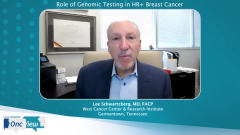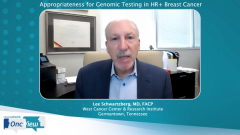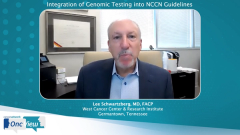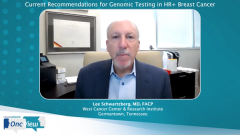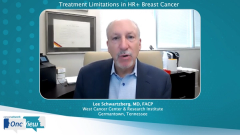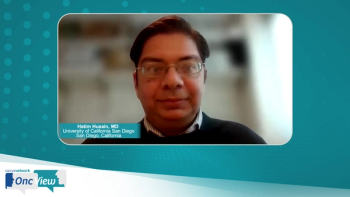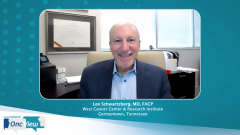
Appropriateness for Genomic Testing in HR+ Breast Cancer
Common scenarios for which genomic testing is recommended to aid in treatment decisions for patients with hormone receptor-positive breast cancer.
Episodes in this series

Kristie Kahl: When do you do genomic testing in your patients with HR+ breast cancer? Moreover, do you test all patients? And why or why not?
Lee Schwartzberg, MD, FACP: I have used genomic assays since they first came on the scene, and I have found them extremely helpful over the years. That said, I do not use them in every single patient with early-stage breast cancer. If a patient is not a candidate for chemotherapy, I do not use a genomic assay. That might be particularly at the extremes of age. Someone who had many comorbidities, was older, and had a small tumor certainly would not even consider chemotherapy in that case. Genomic assays have their most utility in cases where you are not sure if you are going to need chemotherapy. We give chemotherapy to essentially all HR+ [hormone receptor-positive] patients who have 4 or more positive nodes. That is not a setting that we use them. Even those that have bigger tumors and 1, 2, or 3 nodes we typically will err on the side of overtreatment and give chemotherapy because we do not want to miss an opportunity to help a patient in that setting. But the majority of early-stage breast cancers really are stage 1 or 2, and have either node-negative disease; have tumors that are small to intermediate size, and have sometimes 1 or 2 nodes positive. I find genomic assays extremely useful in that case to give me a more accurate prognosis for the individual patient. And two, to help me make the decision about chemotherapy. All the assays, and there are now several that are recognized by the NCCN [National Comprehensive Cancer Network], all of them are prognostic. Some of them are predictive for chemotherapy or predictive for extended adjuvant endocrine therapy utilization, which we’ll talk about.
Transcript edited for clarity.
Newsletter
Stay up to date on recent advances in the multidisciplinary approach to cancer.


